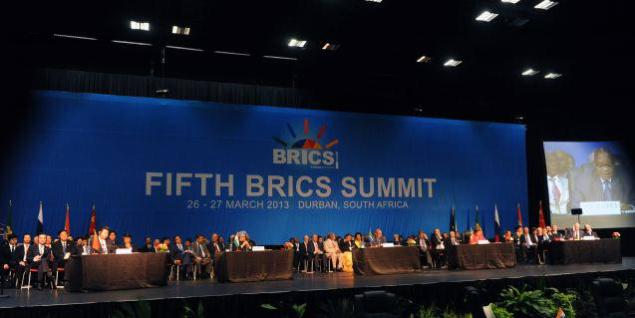« October 20, 2013 - October 26, 2013 | Main | November 03, 2013 - November 09, 2013 »
November 01, 2013
Goodbye, Old Friend.

"Ed. Post" (? - 2013), the anonymous editor of Blawg Review. Thank you. Rest in peace. And make it count, sir. I am sorry we quarreled so much.
Posted by JD Hull at 11:54 PM | Comments (0)
The Economist on MLPs: "Gaming" Sarbanes-Oxley.
.jpg)
Under the U.S. Code, only certain businesses are permitted to become publicly-traded entities known as Master Limited Partnerships (MLPs). Most MLPs are fossil-fuel energy companies. Think major pipeline systems delivering natural gas, crude oil and refined fuels to end markets. MLPs offer the tax benefits of a partnership, the liquidity of publicly-traded stocks, the limited liability of a corporation and, importantly, the governance of a privately-held firm. See The Economist's new piece on MLPs in Subterranean Capitalist Blues and its typically snarky take on American finance "gaming" the corporate governance rules of Sarbanes-Oxley. Excerpt:
Time and again, the imposition of new burdens on businesses distorts the flow of money. Enron’s demise led to the Sarbanes-Oxley act, a well-intentioned law that changed the economic calculus for going public in America. Finance has yet to meet a rule it doesn’t want to game. Before the crisis, regulations that made it relatively expensive for banks to hold assets encouraged them, disastrously, to squirrel them away in off-balance-sheet vehicles.
Since the crisis, the regulatory burden on firms has shot up. Many of the new rules designed to make finance safer—raising capital levels, improving transparency in derivatives markets—are vital. Plenty are laudable: allowing “say on pay” votes for shareholders, for example. But the effect is the same: capital is again flowing to where frictions are lowest. As the constraints on regulated banks pile up, the global shadow-banking system grows: from $62 trillion in 2007 to $67 trillion in 2011.
Even when rules are rolled back, new distortions can easily result. The 2010 Dodd-Frank act permanently exempted smaller public companies from some of the most burdensome elements of Sarbanes-Oxley, for example. But some firms deliberately stay small in order not to pass thresholds that would trigger tougher rules. The perversity is breathtaking: rules to protect investors encourage firms not to grow.
Posted by JD Hull at 07:32 PM | Comments (0)
October 28, 2013
"Former titans of the world economy:" Britain, USA, Germany, France and Italy.
At October's Cross-Culture, do see "Russia’s role in the BRICS union." Richard D. Lewis notes that Britain, USA, Germany, France and Italy are no longer the main engine of global expansion. Excerpts:
The BRICS union--comprising Brazil, Russia, India and China (with South Africa tagging along)--is a powerful union, commanding half the world’s population and nearly 50% of world GDP. These figures, as seen by the West, are daunting enough, but, with further analysis, their significance increases sharply in connection with their relation to the expansion of global growth.
The year 2013 may well represent a tipping point for the global economy. For the first time since the Industrial Revolution galvanized Britain to dominate world trade in the 19th century, emerging economies will produce the majority of the world’s goods and services. The inhabitants of the rich, advanced countries are about to become less important, in terms of both production and consumerism, than the masses of people living in the planet's poor and middle class income countries.
The former titans of the world economy – Britain, USA, Germany, France, Italy – are all rapidly dropping out of the top 10 producers and consumers as far as expansion is concerned. By 2020, only the US stands a chance of qualifying. By that year, the whole of the EU may well contribute only 5-6% of global economic expansion. China and India will represent half of it.
China is, of course, a clear leader of growth, already starring for nearly 20 years with figures of 10% and more, but the other BRICS countries were not far behind and even non-BRICS states like Mexico and Indonesia made the top 10 around 1995. The fastest-growing countries in 2013 included South Sudan (31%), Libya (20.2%), Mongolia (14%), Paraguay (11%), Panama (9%) and Mozambique (8.4%).

Posted by JD Hull at 11:33 PM | Comments (0)
Cross-Selling: You Folks Really Partners? Or Just Sharing Space?

Few law firms cross-sell partners effectively. Lots don't even try.
And then there's this problem: most law firms of any size, depth or sophistication have been reduced to an aggregation of several (or many) smaller fiefdoms or, if you will, "collection of boutiques". Each individual boutique-fiefdom is disturbingly insular, with little overlap on anything--including issue-spotting for either client work or marketing operations.
In these firms, partners are "friends" (with fiduciary duties to one another) and space-sharers--but not true partners in an entrepreneurial sense. Such firms have a built-in prejudice against growth by cross-selling. They are territorial--and often even wary of each other. But they generally do have a few highly frustrated principals or leaders who recognize the problem. That's a start.
Listen up, folks:
1. We can't imagine anything in law firm management more difficult than getting partners to discipline themselves on a long term basis--i.e., institute it as a "habit" that drives everyone all the time--to cross-sell each other.
2. We can't imagine anything more personally or financially rewarding when it works.
Posted by JD Hull at 12:00 AM | Comments (0)